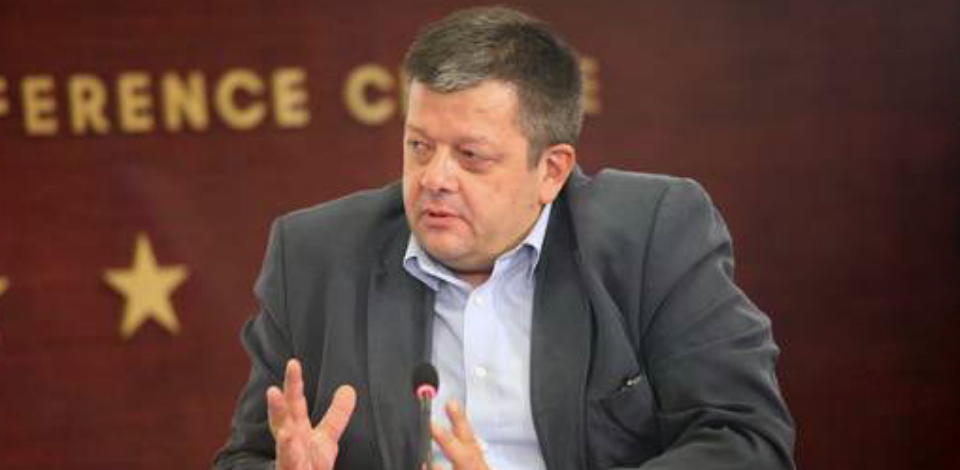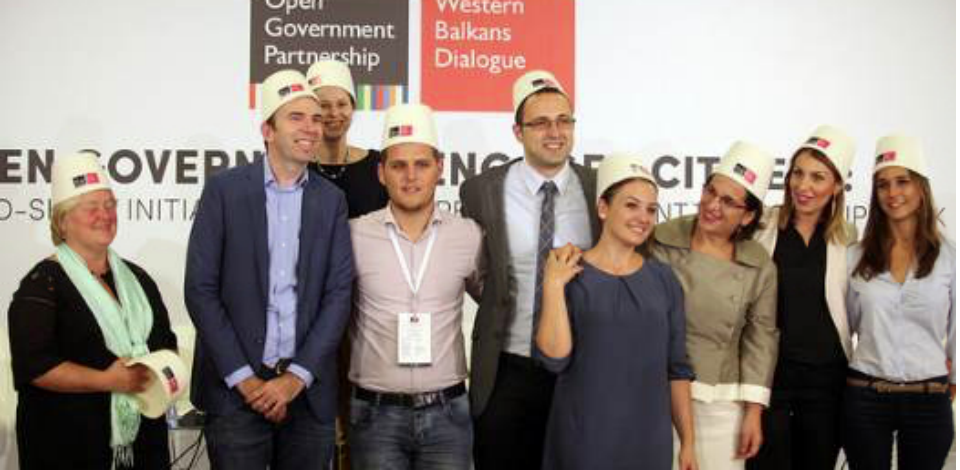OGP in the Balkans
It’s a quiet walk from the Tirana International Hotel to the Orthodox Church, but on the morning of September 10th I was surprised to see how many people joined me to head to the opening of the first OGP Western Balkans Regional Dialogue. Over 250 participants from nine countries (Albania, Bosnia and Herzegovina, Croatia, Georgia, Kosovo, Macedonia, Montenegro, Romania and Serbia) were in Tirana for the event representing governments, civil society organizations, academic institutions and multilateral bodies.
OGP in the Balkans has generally been a story of success, but as with anything in OGP there is always room for improvement. Each of the countries represented at this conference showed over the next two days that they have taken steps to create more transparent and accountable institutions despite the challenges faced along the way. These institutions are significantly more responsive to the needs of their citizens since the transition to democracy. However, OGP is designed to encourage a race to the top among all participating countries. It was clear from my chats during the coffee break that many of these people came to the meeting with the goal of getting new ideas for promoting Open Government; which they would start fleshing out on the bus rides back to Skopje, Belgrade or Podorgocia.
This Regional Dialogue was designed to encourage peer exchange between participants in what the organizers called a ‘learn and show initiative.’ In addition to the thematic sessions on core OGP issues such as fiscal transparency, access to information and open data, participants could also choose to attend lightning dialogues between government, civil society and IRM researchers. In these lightning dialogues, each speaker spent a short time addressing what they felt was going well in their country’s OGP process and what could be improved. As the moderator of many of these sessions, I noticed that the tone of these exchanges were generally direct but that all the speakers were committed to improving the process together. As an example, Serbians didn’t agree about the reasons their action plan was delayed, but they agreed that they needed broader engagement and a permanent dialogue mechanism in the next action plan. The exchanges also offered each participant a chance to ask questions about other practices. For example, Croatia was one of only a few countries in all of OGP to fulfill all seven criteria for public participation (see IRM report).
The European Union ascension process overlaps substantially with the OGP process and many of the participants wanted to discuss how OGP can be a tool for meeting the EU targets. Most of the countries in attendance are currently negotiating with the EU and are undertaking reforms to meet the EU’s criteria for civil society and the rule of law. One Croatian representative described how difficult negotiating Chapter 23: Judiciary and Fundamental Rights proved to be for many countries joining the EU, including his own. That section calls for countries to create reliable institutions capable of fighting corruption. In that vein, EU Head of Section Nicola Bertolini spoke at both the opening and the closing of the event and called the OGP “part of a comprehensive effort to encourage governments to become more transparent.” In my opinion, that comprehensive effort should involve both civil society and government to create effective checks and balances. OGP is an ideal platform for this process to work itself out, and I was pleased to see governments and civil society frequently asking EU countries like Croatia and Romania how they can use OGP to support their entry into the EU.
At the closing of the event, the lead government coordinator for OGP in Montenegro, Srdjan Kusovic, reflected on the region’s history of war and conflict. Just 20 years ago, wars broke out all across the Balkans and once again the term “balkanization” came to describe any divisive and intractable conflict. Mr Kusovic noted that the experiences of the previous two days could help turn the term from a negative to a positive: in OGP parlance, “balkanization” can now refer to an exchange of experiences, as part of a shared commitmentOGP commitments are promises for reform co-created by governments and civil society and submitted as part of an action plan. Commitments typically include a description of the problem, concrete action... to open government.
The OGP Western Balkans Regional Dialogue could be a model for other regions. While it is helpful to gather an entire continent in one place for a regional event, smaller meetings with fewer countries also prove to be very effective for peer exchange as it is more likely that successful initiatives in one country can work in similar countries. This format could work well in other regions like Central America, East Africa, or Southeast Asia. I hope to attend a similar event and learn how far other regions have come in recent years, and how they can go even further with the help of OGP.


